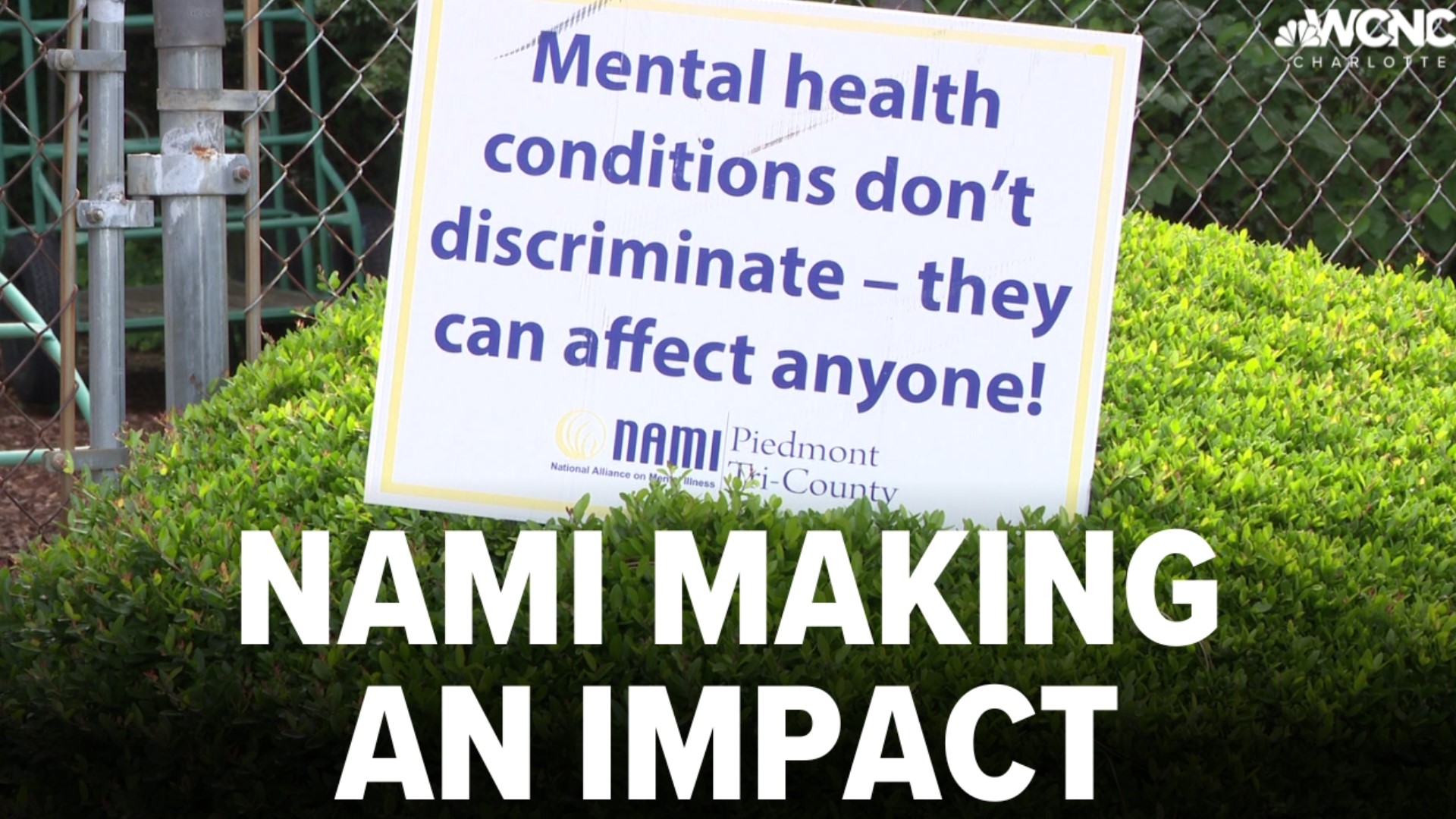FORT MILL, S.C. — Nonprofit leaders, doctors and law enforcement officials gathered in Fort Mill recently to paint a picture of what addressing mental health looks like in South Carolina.
You'll soon be seeing the Hear Me, See Me, Accept Me project around town. It's a mobile mural in the works, meant to raise awareness.
While visibility is where problem-solving starts, it’s far from where it ends, especially when tackling crisis intervention. Karti Durkee with the National Alliance on Mental Illness says it's one of her organization's most impactful issues.
"When I have a person who calls me and they’re on a crisis text line, they may have been stabilized over that period of time," Durkee said. "They did not need to go to the hospital but they've advised them to get a psychiatrist, get a psychologist or they need to go and do a step-down program. What I mean by step-down programs is intensive programs but the child goes home at night."
And that's the primary goal. To keep kids with their parents. The path to that goal is often littered with obstacles.
On the step-down program, other organizations define it as a kind of intermediate or mid-level care for people struggling with mental health, Durkee said. It's for people who may not need care at a hospital but have trouble functioning in society.
Sheriff Kevin Tolson says the lack of resources can lead to dangerous situations.
"There was a local 9-year-old at our local hospital in mental crisis," he said.
When that happens, kids in crisis being handed over to law enforcement for transport, Tolson says he's left with very few options. In that particular situation, he was able to direct his officer to an alternative.
"He got himself in civilian clothes," Tolson explained. "He went and got an unmarked police car so it didn't have the blue lights on top. It didn't look like a police car and we were able to let mom ride with the child, who was in mental crisis, to the hospital."
Still, even after a crisis situation or hospital visit, there's work to be done.
"The families don’t learn how they can support their kid at home," pediatrician Dr. Martha Edwards said.
That's why Edwards has a system for parents navigating mental health with their kids at home.
"There's sort of three parts that I like to focus on with families," she said. "Prevention, screening, you know, if there's a problem and intervention. What you do when there is a problem."
The methods Edwards talks about can include checking out your own family medical history for mental illness diagnoses or coming up with daily routines for yourself or your child. But that doesn’t take away from the bigger solutions to problems, like crisis resources. These leaders talked about the need for more beds in psychiatric care, crisis intervention resource centers and the funding to pursue them.
Contact Kia Murray at kmurray@wcnc.com and follow her on Facebook, Twitter and Instagram.
WCNC Charlotte is committed to reporting on the issues facing the communities we serve. We tell the stories of people working to solve persistent social problems. We examine how problems can be solved or addressed to improve the quality of life and make a positive difference. WCNC Charlotte is seeking solutions for you. Send your tips or questions to newstips@wcnc.com.


